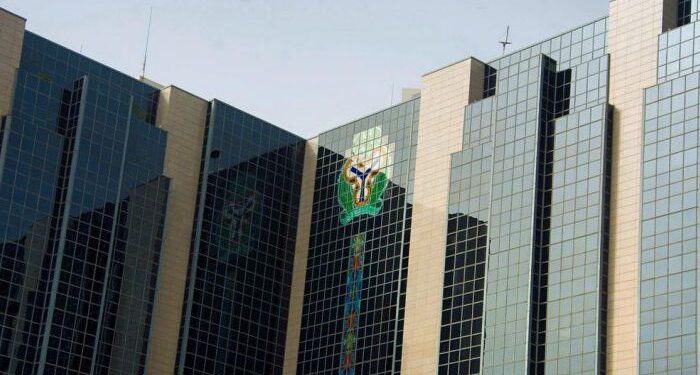The Central Bank of Nigeria (CBN) has unveiled an ambitious plan to revitalise its central bank digital currency (CBDC), the eNaira, with the goal of driving mass adoption, strengthening the country’s digital payment ecosystem, and accelerating the shift toward a cash-lite economy. The initiative, according to the apex bank, will involve a complete overhaul of the eNaira’s features, accessibility options, and integration into mainstream financial services.
Launched in October 2021 as the first CBDC in Africa, the eNaira was designed to complement physical cash by providing Nigerians with a secure, cashless, and easily accessible means of payment. The currency operates as legal tender, fully backed by the CBN, and offers faster, more transparent transactions compared to traditional payment systems. However, despite its groundbreaking debut, the uptake has been slower than anticipated. Experts attribute this to challenges such as low public awareness, limited merchant acceptance, inadequate technical literacy, and patchy internet connectivity in rural areas.

CBN Governor Olayemi Cardoso acknowledged these shortcomings and emphasised that the bank’s renewed strategy is aimed at tackling them head-on. Speaking at a recent media briefing in Abuja, Cardoso said, “The eNaira is a long-term project, and like any innovation, it requires continuous improvement. We are committed to making it a payment option that is affordable, accessible, secure, and usable by every Nigerian, regardless of their location or income level.”
One of the central pillars of the relaunch is expanding the eNaira’s reach beyond smartphone users. The CBN is working with telecommunications companies and fintech partners to integrate USSD technology, allowing feature phone owners—who make up a significant proportion of Nigeria’s population—to access eNaira services without the need for mobile internet. Offline transaction capability is also being developed to ensure that people in areas with poor connectivity can still make and receive payments.
The bank’s plan also includes integrating the eNaira with existing point-of-sale systems, mobile money platforms, and e-commerce payment gateways. By making the CBDC compatible with popular payment channels, the CBN hopes to encourage more merchants to accept it, thereby increasing its visibility and practical utility. To further incentivise adoption, the CBN is considering merchant-specific benefits such as reduced transaction fees and instant settlement.
In addition to enhancing accessibility, security has been placed at the core of the redesign. The CBN is introducing stronger encryption, multi-factor authentication, and real-time fraud monitoring to protect users from cybercrime and unauthorised access. Updated regulatory frameworks are also being developed to ensure the currency is used responsibly, in compliance with anti-money laundering and counter-terrorist financing laws.
Stakeholders have largely welcomed the CBN’s renewed focus. Financial technology experts argue that a more robust and widely adopted eNaira could significantly lower transaction costs for individuals and businesses, increase transparency in financial dealings, and reduce reliance on cash—thereby addressing issues such as cash scarcity, theft, and counterfeit currency. According to fintech analyst Aisha Balogun, “If executed effectively, the eNaira could be transformative. It’s not just about replacing cash; it’s about creating an inclusive, efficient, and transparent payment system that works for everyone.”
Nevertheless, some analysts caution that technological upgrades alone will not be enough to secure widespread adoption. Public education, trust-building, and clear incentives will be essential. The CBN has acknowledged this and is set to embark on a nationwide awareness campaign to educate citizens on how to use the eNaira, its benefits, and its safety features. This campaign will include grassroots outreach, media engagement, and collaborations with civil society groups to ensure information reaches both urban and rural populations.
As part of its rollout strategy, the CBN plans to pilot the upgraded eNaira features in select states before launching nationwide. Feedback from these pilots will be used to fine-tune the platform and address potential bottlenecks. The apex bank is also exploring partnerships with government agencies to enable payment of taxes, utility bills, and other public services through the eNaira, which would significantly broaden its use cases.
In the long term, the CBN envisions the eNaira becoming a core pillar of Nigeria’s payment landscape, operating alongside debit cards, mobile money, and other electronic payment systems. The central bank believes that by lowering barriers to entry, ensuring convenience, and maintaining zero fees for basic transactions, the eNaira can appeal to both tech-savvy urban dwellers and rural populations who have traditionally been excluded from formal banking services.
Cardoso concluded his remarks by reaffirming the CBN’s commitment to innovation and financial inclusion. “This is not just about technology—it’s about ensuring that every Nigerian, from the market trader to the corporate executive, can participate in the digital economy. The eNaira is our currency, and its success depends on all of us embracing it.”
The coming months will be critical for the CBN’s renewed eNaira push. If the enhancements are well-received and adoption rates improve, Nigeria could find itself at the forefront of CBDC utilisation globally, setting an example for other African nations exploring their own digital currencies. Conversely, failure to address existing challenges could see the eNaira continue to struggle for relevance in an increasingly competitive digital payments market.
Support InfoStride News' Credible Journalism: Only credible journalism can guarantee a fair, accountable and transparent society, including democracy and government. It involves a lot of efforts and money. We need your support. Click here to Donate
